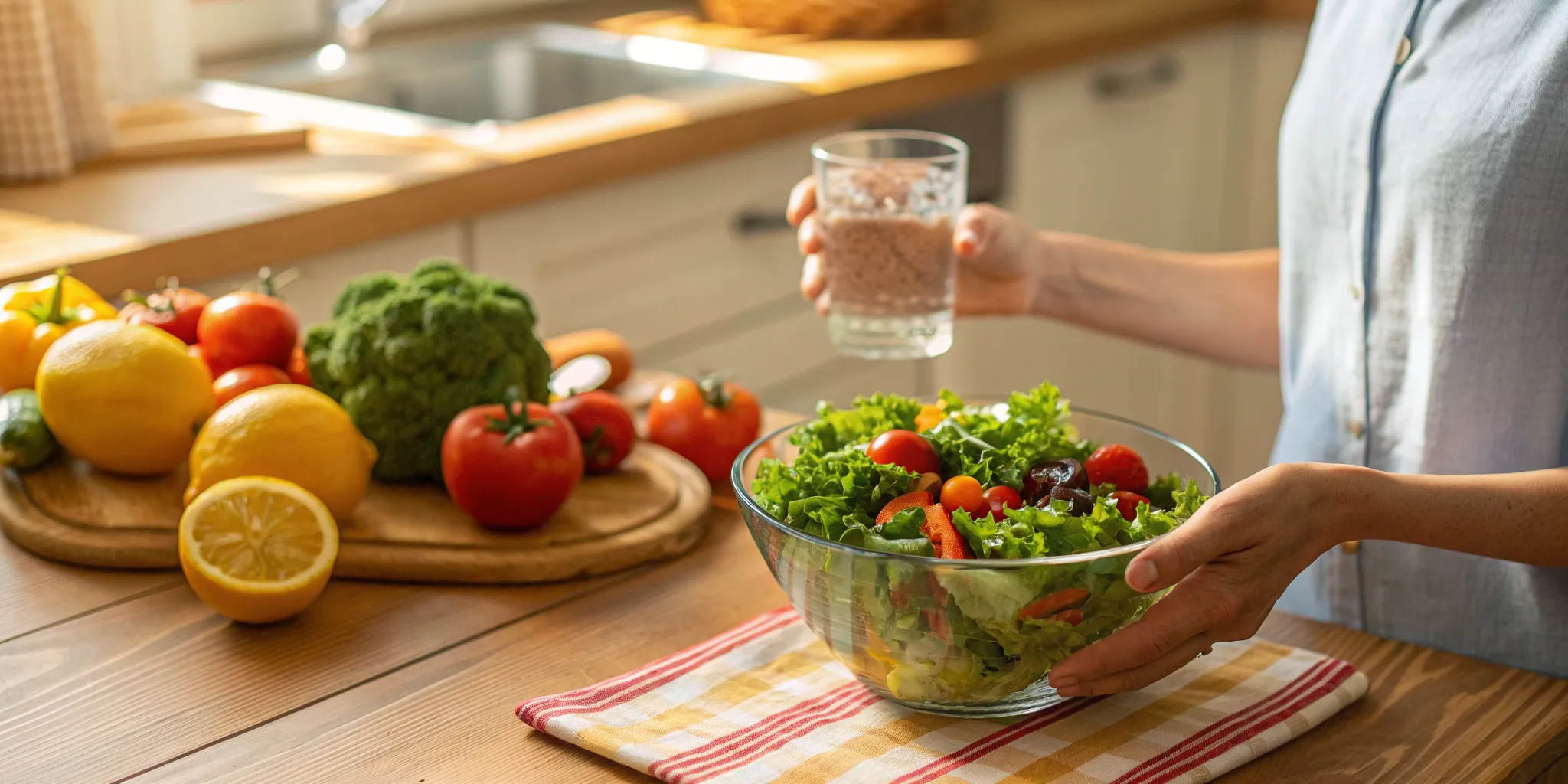Inflammation is a hidden barrier to muscle growth. Discover how chronic inflammation affects muscle recovery and strength, and learn practical strategies, like diet, supplements, and stress management—to overcome it and maximize gains.
Heald Membership: Your Path to Diabetes Reversal
Table of content
Introduction
Achieving muscle growth involves more than just rigorous workouts and high-protein diets. An often overlooked factor that can impede your progress is inflammation. While inflammation is a natural response to exercise-induced muscle damage, chronic inflammation can hinder muscle repair and growth. Understanding the relationship between inflammation and muscle development is crucial for optimizing your fitness journey.
The Battle Between Inflammation and Muscle Growth
Inflammation is a natural physiological response that plays a crucial role in muscle recovery and adaptation. When you engage in resistance training or any strenuous physical activity, tiny microtears occur in your muscle fibers. The body's immune system responds by triggering an acute inflammatory process, where immune cells such as macrophages and neutrophils release signaling molecules called cytokines. These cytokines help initiate tissue repair, remove cellular debris, and stimulate muscle protein synthesis, leading to muscle growth over time.
However, when inflammation becomes chronic due to factors like overtraining, poor diet, stress, or underlying health conditions, it can have detrimental effects on muscle development. Chronic inflammation leads to the persistent release of pro-inflammatory cytokines such as tumor necrosis factor-alpha (TNF-α), interleukin-6 (IL-6), and interleukin-1 beta (IL-1β). These cytokines interfere with anabolic (muscle-building) processes by inhibiting the activation of mTOR (mechanistic target of rapamycin), a crucial pathway for muscle protein synthesis. Additionally, chronic inflammation promotes catabolic activity, increasing muscle breakdown through the activation of pathways like the ubiquitin-proteasome system.
Over time, this imbalance between muscle repair and degradation can result in stalled muscle growth, reduced strength gains, and even muscle wasting. Managing inflammation through proper recovery, nutrition, and stress reduction is key to maximizing muscle-building potential.
Understanding Inflammation: The Hidden Roadblock to Building Muscle
Several factors contribute to chronic inflammation, including poor diet, inadequate sleep, stress, and overtraining. Identifying and addressing these factors is essential for creating an environment conducive to muscle growth.
Key contributors to chronic inflammation:
Diet: Consuming processed foods high in sugars and unhealthy fats can trigger inflammatory responses.
Sleep: Lack of restorative sleep disrupts the body's ability to manage inflammation effectively.
Stress: Chronic stress elevates cortisol levels, which can exacerbate inflammatory processes.
Overtraining: Insufficient recovery time between intense workouts can lead to sustained inflammation.
Identifying the Best Tests for Inflammation and Muscle Growth Challenges
Monitoring inflammation levels is crucial for individuals aiming to optimize muscle growth. Several tests can help assess inflammation:
C-Reactive Protein (CRP): This blood test measures the level of CRP, a protein produced by the liver in response to inflammation. Elevated CRP levels can indicate chronic inflammation.
Erythrocyte Sedimentation Rate (ESR): This test measures how quickly red blood cells settle at the bottom of a test tube. A faster rate can suggest the presence of inflammation.
Plasma Viscosity (PV): Similar to ESR, this test evaluates the thickness of blood, which can increase due to inflammation.
Consulting with a healthcare professional to interpret these tests is recommended, as they can provide insights into your inflammatory status and guide appropriate interventions.
Diet, Protein, and Supplements: Strategies to Build Muscle Amid Inflammation
Managing inflammation through dietary choices and supplementation is pivotal for muscle development.
Dietary Strategies:
Anti-Inflammatory Foods: Incorporate foods rich in omega-3 fatty acids (e.g., salmon, flaxseeds), antioxidants (e.g., berries, leafy greens), and polyphenols (e.g., turmeric, green tea) to combat inflammation.
Adequate Protein Intake: Protein is essential for muscle repair and growth. Aim for 1.6-3.3 grams of protein per kilogram of body weight daily, sourced from lean meats, dairy, legumes, and nuts.
Supplementation:
Whey Protein: A high-quality protein source that supports muscle synthesis. However, some individuals may experience acne breakouts due to whey protein; monitoring your body's response is advisable.
Creatine: This supplement enhances muscle mass and strength by providing additional energy for high-intensity workouts.
Anti-Inflammatory Supplements: Compounds like curcumin (from turmeric) and omega-3 supplements can help reduce inflammation.
Lifestyle Modifications:
Regular Exercise: Study suggests engaging in consistent physical activity can reduce chronic inflammation and promote muscle health.
Adequate Rest: Ensure sufficient sleep and rest days to allow muscles to recover and inflammation to subside.
Stress Management: Incorporate stress-reducing practices such as meditation, yoga, or deep-breathing exercises to lower cortisol levels and inflammation.
Conclusion: Overcoming Inflammation to Unlock Your Muscle Potential
Chronic inflammation can be a significant barrier to achieving muscle growth. By understanding its impact and implementing strategies to manage inflammation, such as proper nutrition, appropriate supplementation, regular exercise, and lifestyle modifications, you can create an optimal environment for muscle development. Monitoring inflammation through specific tests and making informed adjustments to your routine will empower you to overcome this hidden obstacle and reach your fitness goals.

Popular Blogs
Comments









